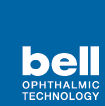Could a simple eye exam replace the brain scan needed to detect Alzheimer’s disease? Currently, doctors must perform a PET scan of patients’ brains for a definitive diagnosis of Alzheimer’s disease. It’s expensive and requires the injection of radioactive tracers. But soon, a simple eye scan may be all that’s needed. And it could catch the disease sooner.
Plaques made up of a protein known as beta-amyloid form in Alzheimer’s victims’ brains, where they damage and destroy brain cells. The PET scans can identify these plaques. But a team from the Cedars-Sinai Medical Center discovered that these same protein deposits also occur on the retina. And the amount of plaque found on the retina correlates with the amount of plaque in specific areas of the brain.
In a clinical trial, 16 Alzheimer’s disease patients underwent a non-invasive eye exam after first drinking a solution containing curcumin. The curcumin caused the amyloid plaque in their retinas to light up, so it could be detected. When their scans were compared to those of a healthy control group, the connection between plaques in the retina and the brain was established.
The hope is that eye scans will be able to detect the condition years before patients experience any actual symptoms.
A paper on the research was recently published in the journal JCI Insight.
